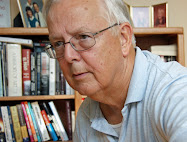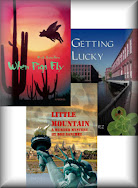We have a good group of people in Mesilla Valley Writers, where I'm president until the end of this year. At age 67, I am one of the younger members. Most of us live in our own homes, but we gather once monthly at an assisted living facility where Pat, one of our members, lives just a few feet away from our meeting room. Before each meeting, a couple of us arrange comfortable chairs in a cozy oval so that the 16 or 17 who typically attend can see and interact with each other.
Yesterday, we had a guest speaker talk to us about researching and writing oral histories. She talked about interviewing primary sources, listening to and studying but not transcribing what people have to say, and looking for useful anecdotes while paying attention to regional speech patterns. She had members briefly interview each other, so I questioned 80-something-year-old Helen about her trip to America from England when she was a young teenager in 1940. Hitler was in the process of trying to demolish Britain, and the British wanted to protect their children by sending them to the countryside or out of the country altogether. Though British, Helen had been born in the U.S. and was allowed to sail back to the States, accompanied only by her teenage sister. She hadn't gotten much past talking about the threat of U-boats when our interviewing exercise had to end.
Then we noticed the tea in the back of the room. One of our few refreshments in the meeting is the iced tea we purchase from the assisted living facility and which a staff person rolls in on a cart. This time it arrived after the meeting started, and hardly anyone noticed. After our speaker finished her program, Helen good-naturedly chastised me for not announcing earlier that the tea had arrived. So I then announced it to all, saying "Helen is mad at me because I didn't tell you about the tea earlier." After a minute, an elderly gentleman sitting next to Helen pointed to the door and said to me, "You know, Pat's door is open. You can use her bathroom."
Helen and I looked at him. "I'm sorry," I said. "What are you talking about?"
"You said Helen is mad at you because you didn't pee earlier," he said.
Helen and I had a great laugh, but the poor man was simply trying to be helpful.

















